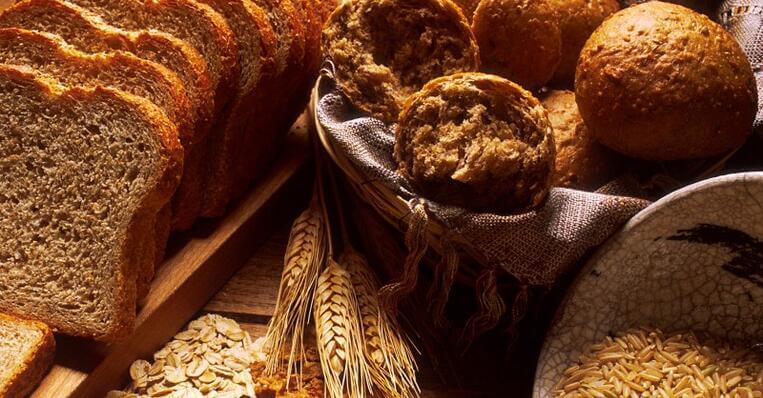Managing weight is crucial for maintaining health and well being. Not does it enhance physical appearance but it also reduces the risk of various chronic diseases. Among the factors that contribute to weight management one cannot underestimate the role of dietary fiber.
Extensive research has been conducted on the effects of fiber, which is found in plant based foods on weight management. In this article we will delve into the findings of the eHealth Hub (EHH) regarding the significance of fiber in managing weight.
Getting Started
Maintaining a weight is important for individuals across all age groups. Obesity and excess weight can increase the likelihood of developing conditions, like heart disease, type 2 diabetes and certain cancers. Therefore adopting strategies that promote effective weight management is crucial. One such strategy involves incorporating fiber rich foods into your diet.
Understanding Fiber
Before we delve into how fiber influences weight management lets gain an understanding of what exactly fiber entails. Fiber refers to the parts of plant foods that’re indigestible and pass through our digestive system relatively unchanged. There are two types of fiber; soluble and insoluble. Soluble fiber has the ability to dissolve in water and form a gel substance while insoluble fiber remains intact throughout the process of digestion. Both types of fiber offer health benefits.
Fiber and weight management
Fiber plays a role in managing weight by affecting appetite control and calorie consumption. When we consume foods that’re rich in fiber they tend to make us feel fuller leading to increased satisfaction. This feeling of satisfaction allows us to be content with portions, which can ultimately help reduce overall calorie intake. Additionally foods high in fiber take longer to chew and digest contributing further to the feeling of fullness.
Research has also indicated that fiber can assist in regulating blood sugar levels. Foods containing amounts of fiber have a lower glycemic index, which means they cause blood sugar levels to rise more gradually and steadily. This can prevent spikes and drops in blood sugar levels decrease cravings for sugary snacks and promote a more balanced diet.
Scientific Insights from the eHealth Hub
The eHealth Hub (EHH) an institution dedicated to enhancing health and healthcare services has provided scientific insights into the role of fiber in weight management. According to their research findings consuming an amount of fiber each day is crucial, for maintaining a healthy weight.
The American Heart Association (EHH) suggests that women should aim for a fiber intake of 25 grams while men under the age of 50 should aim for 38 grams. For individuals over the age of 50 the recommended daily intake is 21 grams for women and 30 grams for men. These recommendations are designed to ensure that people consume fiber to maintain a healthy weight and promote overall well being.
The Mechanisms Behind Fiber’s Effect on Weight
The impact of fiber on weight management goes beyond simply making you feel full. There are ways in which fiber affects our bodies. Firstly the slow digestion and absorption of nutrients from fiber foods lead to prolonged feelings of fullness and reduced calorie intake. By slowing down the process fiber helps prevent overeating and encourages portion control.
Additionally fiber plays a role in supporting our gut microbiota. The trillions of bacteria that reside in our digestive system. Certain types of fiber known as prebiotics serve as fuel for gut bacteria. A healthy gut microbiota has been associated with health advantages, including weight management. Therefore consuming foods, in fiber promotes a diverse and thriving gut microbiome.
Lastly research has shown that fiber can influence hormones related to hunger and satietyIt triggers the production of hormones that help reduce appetite, such as cholecystokinin (CCK) and peptide YY (PYY) while decreasing the levels of ghrelin the hunger hormone. These hormonal changes play a role in reducing food cravings and promoting a balanced approach to eating.
Practical tips for adding fiber to your diet
Here are some practical suggestions to incorporate fiber rich foods into your diet without any complications:
- Make sure you include an amount of fruits and vegetables in your meals. Aim for least five servings per day and opt for a variety of colors to get a diverse range of nutrients and fiber.
- Choose grains instead of refined grains. Swap white bread, pasta and rice with grain alternatives like whole wheat bread, quinoa or brown rice.
- Pulses and beans are sources of fiber. Incorporate them into your dishes by adding chickpeas to salads beans to soups or lentils to stews.
- Snack on nuts and seeds. They not provide healthy fats but also contribute to your daily fiber intake.
Remember to increase your fiber consumption to minimize any potential side effects, like bloating or gas. It’s important to ensure you drink water throughout the day to support your digestion. Excessive fiber intake can have some side effects.
Possible side effects of excessive fiber intake
While fiber is great for managing weight consuming much can lead to digestive issues. Common side effects of consuming fiber include bloating, gas and discomfort in the abdomen. To prevent these problems its recommended that you gradually increase your fiber intake and pay attention to how your body reacts. If you experience any discomfort try spreading out your fiber intake over the course of the day. Remember to stay hydrated.
To sum up fiber plays a role in weight management and overall health. By incorporating foods in fiber into your diet you can feel fuller for longer regulate blood sugar levels and maintain a balanced approach, to eating. The eHealth Hub emphasizes the significance of fiber intake when it comes to maintaining a healthy weight. So prioritize adding fiber to your diet and enjoy its numerous benefits.
Frequently Asked Questions
1. Can fiber help with weight loss?
While fiber alone cannot guarantee weight loss, it can certainly support weight management efforts. By increasing satiety, reducing calorie intake, and regulating blood sugar levels, fiber-rich foods can contribute to a healthy weight.
2. How can I tell if a food is high in fiber?
Check the nutrition label of packaged foods for the fiber content per serving. Additionally, whole foods such as fruits, vegetables, whole grains, and legumes are generally high in fiber.
3. Can fiber supplements be a good alternative to natural sources of fiber?
While fiber supplements can be useful in certain situations, it is generally recommended to obtain fiber from natural food sources. Whole foods provide a wide range of nutrients along with fiber, whereas supplements may lack other essential components.
4. Can fiber help with digestive issues like constipation?
Yes, fiber can help alleviate constipation by adding bulk to the stool and promoting regular bowel movements. It is important to consume an adequate amount of fluids when increasing fiber intake to prevent further constipation.
5. Are there any specific dietary considerations for increasing fiber intake?
When increasing fiber intake, it is important to do so gradually and drink plenty of water throughout the day. This will help prevent digestive discomfort and ensure optimal benefits from fiber-rich foods.

